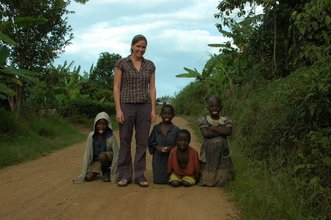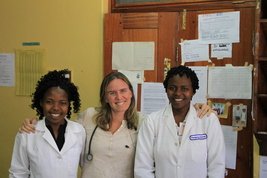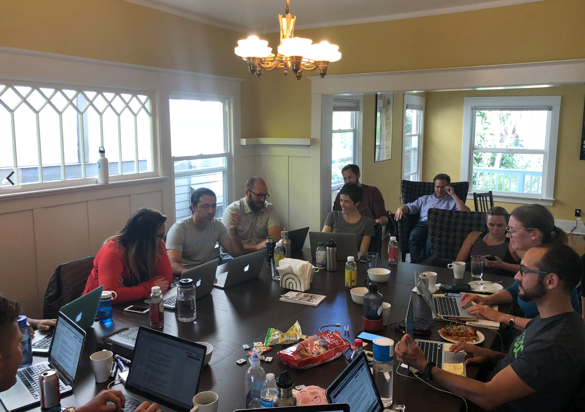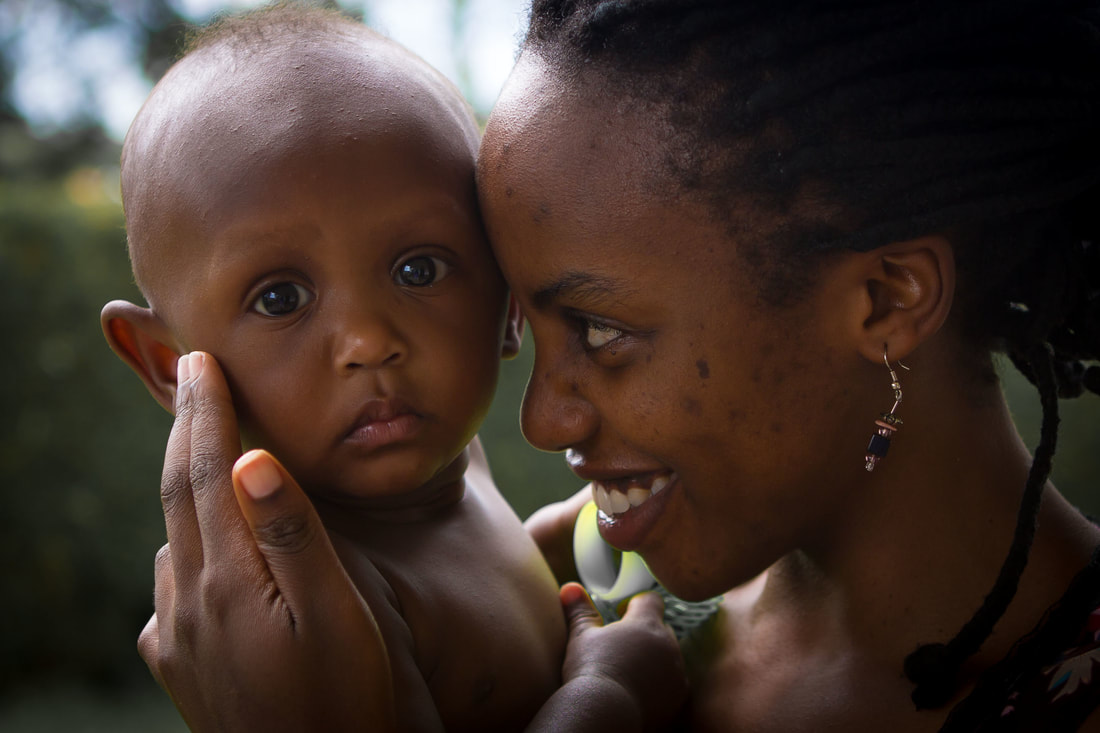GEC Staff, Board of Directors, and Volunteers came together in September for our annual meeting…
Seven Years Of Progress
One brisk “ring” and then silence. I jolt from a deep, and too short, sleep into the darkness of the Nyakibale guest house in rural Uganda. Confused at first, I listen to the drops of rain on the metal roof vibrate before I realize that my mobile had rung—in the standard fashion of the OR nurses calling once and hanging up to inform me of a patient arrival. It was my night on call, and my colleague, Dr. Mark Bisanzo, was getting some much deserved sleep. On that moonless night in 2007, I shuffled down to the Operating Theatre through the mud, using my headlamp as a guide, and opened the door to find a patient lying alone, on a small narrow rusty minor theatre table, unresponsive. No nurses, clinical officers, or doctors were present, blood was pooling on the floor from a head wound. She had obvious leg fractures. I resuscitate the patient, treat her for an open skull fracture, give her antibiotics, do a FAST exam, set her fractures, and admit her to the hospital.
 Over the next few hours, I’ve diagnosed someone with respiratory distress with newly found HIV and related tuberculosis and pneumonia, and taken care of a few children with cerebral malaria. I’ve seen a few nurses but haven’t seen a clinical officer or a Ugandan doctor, and I realize that most patients who present to the hospital aren’t seen by a licensed provider for over 24 hours. As the sun is rising, and I collapse into bed, I realize that after I leave here after a few short weeks of a residency rotation, that woman (and everyone else who arrives with emergent conditions) would have died or become severely disabled. While I feel good about saving these patient’s lives tonight, I am conflicted about whether I am serving the community in the long run if I leave nothing behind when I go.
Over the next few hours, I’ve diagnosed someone with respiratory distress with newly found HIV and related tuberculosis and pneumonia, and taken care of a few children with cerebral malaria. I’ve seen a few nurses but haven’t seen a clinical officer or a Ugandan doctor, and I realize that most patients who present to the hospital aren’t seen by a licensed provider for over 24 hours. As the sun is rising, and I collapse into bed, I realize that after I leave here after a few short weeks of a residency rotation, that woman (and everyone else who arrives with emergent conditions) would have died or become severely disabled. While I feel good about saving these patient’s lives tonight, I am conflicted about whether I am serving the community in the long run if I leave nothing behind when I go.Flash forward seven years. Global Emergency Care Collaborative is in it’s sixth year as an NGO; we’ve built an emergency department at Nyakibale Hospital, have created an innovative and unique task shifting emergency care training program that is garnering international attention, have published international articles from a wealth of robust data, have a model being replicated in other countries, have advised nations on emergency care, are on our fifth class of Emergency Care Practitioners and are planning an expansion of the program nationally and in Kenya.

Now that the ECP program is in place, patients are seen on arrival to Nyakibale by trained Ugandan emergency care specialists, resuscitated, and managed as they would if seen by emergency medicine physicians, and patient lives are being saved and they are living longer with less disability. Not only that but the training program is primarily being taught by our trained Ugandan ECPs. I have confidence that the community served by Nyakibale’s ECPs is getting high quality emergency care services on a continual basis, probably higher level than is available in almost any other place in sub-Saharan Africa. I’m proud of our ECPs for their commitment to emergency medicine. I’m proud my GECC partners for their commitment to emergency medicine education in resource limited countries. I’m proud of our partners for funding and supporting this endeavor. I’m proud of what we’ve “left behind”. I’m excited for the future.



This Post Has 0 Comments